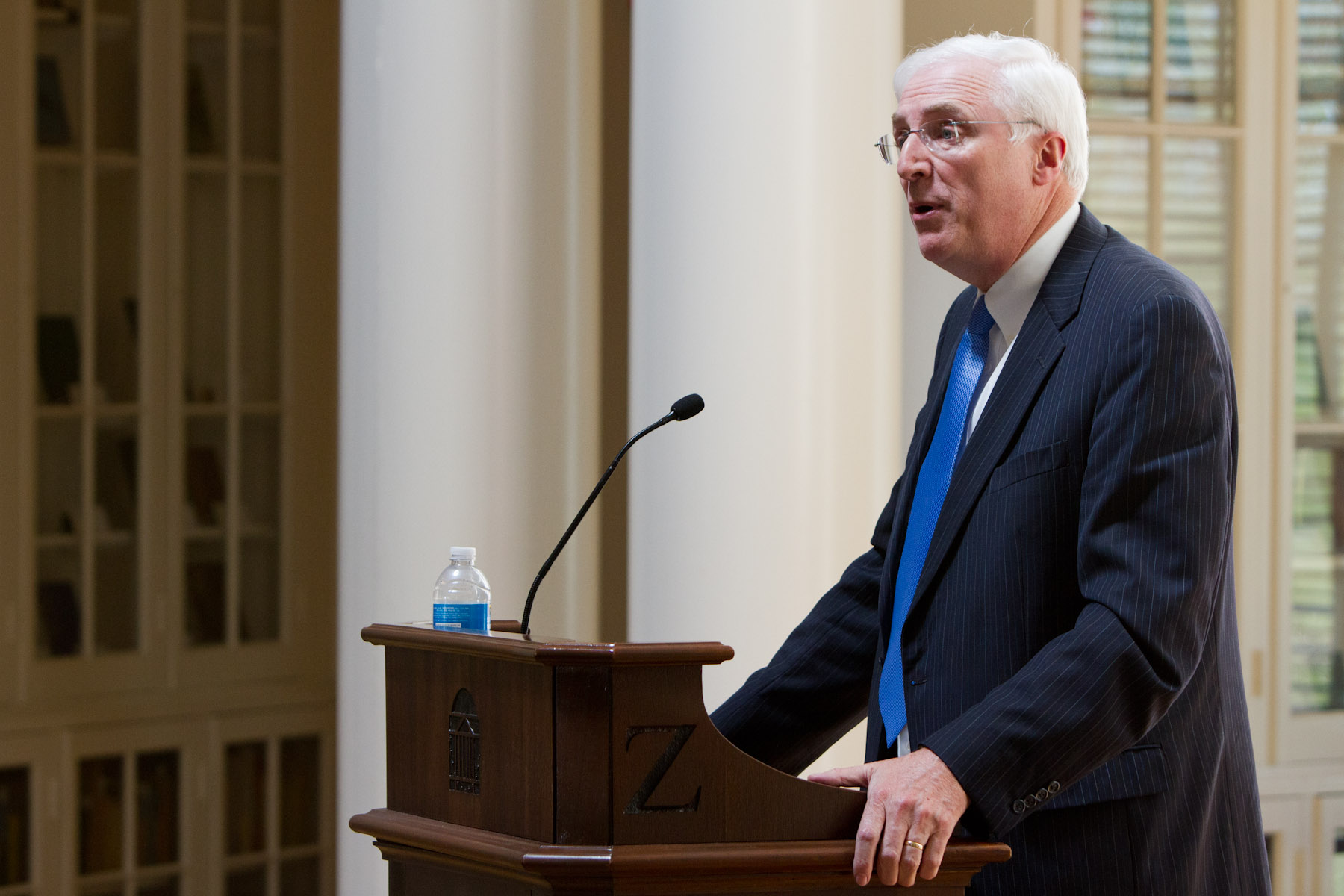As Ireland's ambassador to the United States, Michael Collins sees himself as more than another voice in Washington. He also represents his native soil to the 60 million-strong Irish diaspora worldwide.
Collins, who spoke Tuesday at the University of Virginia's Rotunda Dome Room, gave a wide-ranging address in which he touched on Ireland's special relationship with the U.S., the Northern Ireland peace process, the current state of the Irish economy and "The Gathering," when all those with Irish ties are invited back to reconnect with their roots.
A Dublin native, Collins noted that the Irish economy was in deep recession, especially compared to the mid-1990s, when the "Celtic Tiger" business boom took off. Unemployment was 4 percent in 2006. Now, it stands at 14 percent.
"It's been a very difficult time and a severe challenge that is only now stabilizing again," he said. "We lost a significant chunk of the economy and we have experienced trauma. In two years' time, we'll be back on our feet, but we must live within our means."
Ireland has launched an unpopular austerity program to satisfy the demands of the International Monetary Fund and the European Union, since it has given up its own currency and now uses the euro. Collins remains optimistic, but said Ireland has a small population and needs to export to grow.
He is seeking more U.S. investment in Ireland, saying it is a wonderful venue for companies that seek a European presence. He cited a corporate tax rate of 12.5 percent, one of the lowest in the world, which he defended against European critics, saying they can drop their tax rates to make themselves competitive with Ireland.
U.S. companies are already a presence there. "The U.S. investment in Ireland is greater than its investment in Russia, China and India combined," he said.
But while more investment in exporting businesses is a potential long-term benefit, Collins noted that tourism dollars are more immediate and highlighted "The Gathering" as a way of enticing some of the roughly 40 million people in the United States with connections to Ireland to visit the country in 2013.
"We want them to reflect on how to keep that connection going, to maintain a sense of heritage," Collins said. "We are extending a special invitation to our global family to come home for 'The Gathering' in 2013. Of course, you're welcome any year, but next year is a special effort."
He noted that President Obama and Queen Elizabeth were among recent visitors to Ireland, the latter making the first royal visit since 1911. "It's not been easy until recently," Collins said. "We have a new relationship with London and Belfast."
A participant in the Northern Ireland peace accords, Collins said patience was needed to bring peace to Ireland. "It was 1994 when the Irish Republican Army announced a cease fire, and it was 2007 until all the parties were willing to share power," he said.
Coinciding with the peace was prosperity, and Collins said that the Irish invested their "Celtic Tiger"-era profits in infrastructure such as roads, airports and education.
Collins said there has been an increase in interest in Irish studies and he encouraged students to come to Ireland as part of their education, noting that his audience included both American students who had studied in Ireland and Irish students who were studying in America.
He also cited the contributions the Irish have made to U.Va., including those of carpenter James Dinsmore, who worked for University founder Thomas Jefferson at Monticello and later on the construction of the University. He also noted that Jefferson's ideas, in the Declaration of Independence, influenced the Irish declaration of independence in 1916.
Media Contact
Article Information
April 6, 2012
/content/irish-ambassador-michael-collins-seeks-investment-tourism-his-homeland

